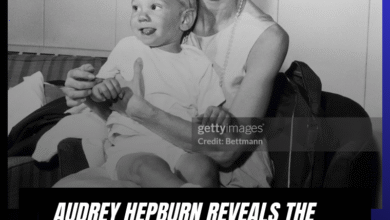The Marilyn Monroe Movie That Critics Got Wrong: ‘Don’t Bother to Knock’ and Its Quiet Rise to Fame
OPINION: This article may contain commentary which reflects the author's opinion.
Marilyn Monroe’s legacy as one of the most iconic actresses in Hollywood history has often been defined by her portrayal of the “blonde bombshell” in films like Gentlemen Prefer Blondes (1953) and Some Like It Hot (1959). However, her career spanned a wide range of roles, including dramatic performances that showcased her versatility beyond the comedic and musical archetype she was so famously associated with. Among her less discussed films, Don’t Bother to Knock (1952) stands out as the one Monroe herself considered to be the most overlooked.
The Plot and Monroe’s Dramatic Shift
Don’t Bother to Knock, directed by Roy Ward Baker, marked a significant turning point in Monroe’s career. The film, which was one of her first leading dramatic roles, has since gained recognition for Monroe’s portrayal of Nell, a babysitter with mental instability. Unlike the roles that established her as a Hollywood sex symbol, Don’t Bother to Knock challenged her to step into more complex emotional territory. Her character’s vulnerability, paranoia, and fragility set the stage for a performance that many critics now recognize as one of her finest.
At the time of its release, the movie was met with mixed reviews, and Monroe’s performance was overshadowed by her more famous comedic and glamorous roles. The New York Times, in its 1952 review, questioned whether Monroe was suited for dramatic roles, which may have contributed to the film’s failure to receive the attention it deserved. Furthermore, the film’s sensitive handling of mental health issues—an area often stigmatized in the 1950s—likely limited its appeal to mainstream audiences.
Reevaluation and Critical Recognition
In recent years, Don’t Bother to Knock has undergone a reassessment, with modern critics highlighting the nuances of Monroe’s performance. Sites like Screen Rant have praised the film as one of Monroe’s most overlooked gems, noting that her portrayal of Nell was evocative, intense, and emotionally resonant. In fact, the film holds a rare 100% rating on Rotten Tomatoes, a testament to the appreciation for Monroe’s depth as an actress.
In their 2022 ranking of Monroe’s films, Vulture described Don’t Bother to Knock as “seldom-spoken-of” and ranked it 4th in a list of her most significant, albeit underappreciated, works. The film has since earned its place among her best dramatic performances, with Collider’s 2024 list acknowledging it as “ahead-of-its-time” and a “hidden treasure” in Monroe’s filmography.
The Significance of Monroe’s Performance
Monroe’s performance in Don’t Bother to Knock is notable for its emotional depth and the range of psychological complexity she brings to her character. Unlike her more familiar roles, where she was often cast as the playful, seductive lead, Nell is a woman struggling with mental instability, which required a different approach. According to critics, Monroe’s ability to convey this instability without resorting to melodrama was a testament to her growing acting abilities. This film allowed her to show her dramatic chops, laying the groundwork for more complex roles she would later explore.
Notably, the role of Nell mirrors some of Monroe’s own early struggles. Much like her character, Monroe faced personal hardships in her youth, including abandonment and insecurity, making her portrayal of Nell even more poignant. This personal connection likely added an emotional layer to her performance, although it remained largely overlooked during her lifetime.
Cultural and Historical Context
The 1950s were a time when Hollywood was still grappling with mental health stigma, and Don’t Bother to Knock took on a subject that was rarely explored in films of that era. The film’s handling of mental illness as a serious and nuanced issue might have been too advanced for its time, leading to its initial lack of acclaim. Monroe, trapped in a persona that emphasized her physical beauty and sex appeal, was eager to break free from these roles and pursue more challenging parts that reflected her true range. Unfortunately, as was the case with Don’t Bother to Knock, Hollywood often failed to recognize her desire to evolve as an actress beyond the glamorous roles that defined her.
Comparative Analysis with Other Monroe Films
While Don’t Bother to Knock is often cited as Monroe’s most overlooked film, other works like The Misfits (1961), Bus Stop (1956), and Niagara (1953) also showcase her dramatic talents, but they received more attention, either due to their association with her personal life or their place in her later career. The Misfits, for example, is often discussed in the context of Monroe’s final film and her personal struggles, which has kept it in the public eye.
In contrast, Don’t Bother to Knock has remained largely absent from mainstream discussions about Monroe’s career, despite being a standout in terms of her performance. It serves as a reminder that Monroe’s ability to transcend her “blonde bombshell” image was often overlooked, even as she sought more meaningful and complex roles.
Conclusion: A Legacy of Underrated Talent
Don’t Bother to Knock stands as a powerful example of Marilyn Monroe’s range as an actress, one that was not fully recognized during her lifetime but is now being reevaluated by modern critics. Monroe’s nuanced performance as Nell showcases her ability to convey emotional complexity, making this film an essential part of her legacy. While Roman Holiday and Some Like It Hot may continue to dominate discussions about her filmography, Don’t Bother to Knock deserves recognition as one of her most undervalued roles—a role that truly reflects the depth and versatility she brought to the screen.
Marilyn Monroe was more than the sum of her iconic roles; she was a deeply talented actress who, had she been given more opportunities to explore complex characters, could have become one of the most respected dramatic performers of her time. Don’t Bother to Knock is a testament to what might have been, and a reminder that Monroe’s true talents extended far beyond her most famous roles.



